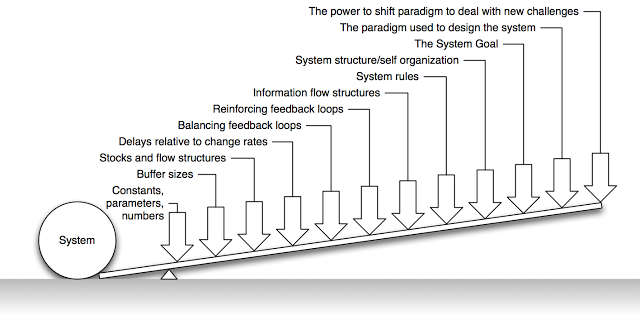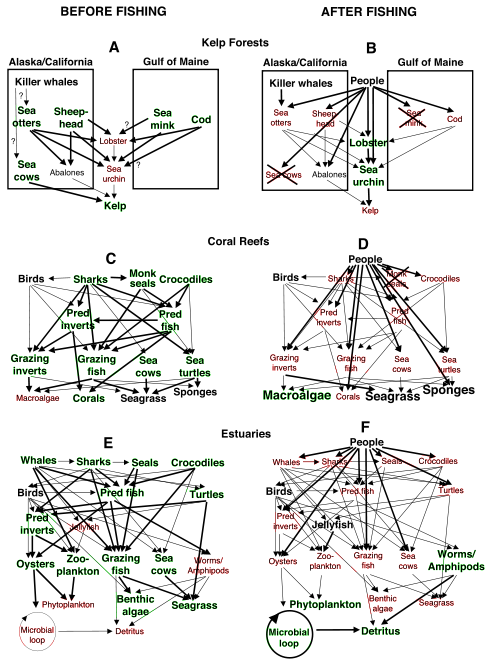This is another installment of my top 500 journal articles: the papers that I keep coming back to and recommending to others.
Few papers have had a larger impact on my thinking and goals as Donella Meadows’s article Leverage Points: Places to Intervene in a System:
Folks who do systems analysis have a great belief in “leverage points.” These are places within a complex system (a corporation, an economy, a living body, a city, an ecosystem) where a small shift in one thing can produce big changes in everything.
She then explains how to understand them and where to find them, with fantastic examples from across the systems literature: global trade, ecology, urban planning, energy policy, and more. Reading it makes you feel like a kid in a candy shop, with so many leverage points to choose from. Shamelessly stealing a punch-line graphic, here are the leverage points:

I have a small example of this, which you can try out. Go to my Thermostat Experiment and try to stabilize the temperature at 4 °C without clicking the “Show Graph” button until at least 30 “game minutes”. Then read on.
I’ve had people get very mad at me after playing this game. Some people find it impossible, get frustrated, and want to lash out. It’s a very simple system, but you are part of the system and you’re only allowed to use the weakest level of leverage point: the parameter behind the thermostat knob. What would each of the other leverage points look like?
- 11. Buffer sizes: you can sit at a bad temperature for longer without hurting your supplies
- 10. Material stocks and flows: you can move all the supplies out of the broken refrigerator
- 9. Length of delays: the delay between setting the thermostat and seeing a temperature change is less
- 8. Negative feedback: you’re better at setting the temperature
- 7. Positive feedback: the recovery from a bad temperature is faster
- 6. Information flows: you get to use the “Show Graph” button
- 5. Rules of the system: you can get a new job not working at a refigerator warehouse
- 4. Change system structure: you can modify the Thermostat experiment code
- 3. Goals of the system: you replace the thermostat with a “fresh-o-stat” and just turn that up
- 2. System mindset: you can close the website
- 1. Transcending paradigms: you can close your computer

